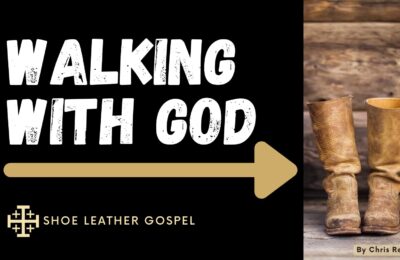Home | Bible Resources | Pentateuch (or the Law)
Genesis: The Book of Beginnings
Introduction
Genesis is where everything begins — creation, life, sin, redemption, nations, and the covenant story of God’s unstoppable grace. Genesis is not just the first book of the Bible; it is the beginning of the story that defines reality itself. In its pages, we find the origins of the universe, humanity, marriage, family, work, sin, judgment, and salvation. Genesis introduces us to the character of God: all-powerful, all-wise, just, merciful, and faithful to His promises.
The book is divided into two major sections: Primeval History (chapters 1–11) and Patriarchal History (chapters 12–50). The Primeval History traces God’s creation of the world, humanity’s tragic fall, and the escalating consequences of sin through three great rebellions:
- Eden (Genesis 3) – Humanity’s rebellion against God’s command.
- Divine-Human Corruption (Genesis 6:1–4) – Spiritual beings corrupting humanity.
- Babel (Genesis 11) – Collective defiance against God’s sovereignty.
These chapters explain why the world is broken and why redemption is necessary.
The Patriarchal History shifts focus to God’s covenant plan through one man, Abraham, and his descendants. Abraham, Isaac, Jacob, and Joseph are not just ancestral figures; they are examples of faith, failure, transformation, and providence. Their stories reveal that God’s plan of redemption is not thwarted by human weakness. Through covenant promises and providential events, Genesis shows that God is building a people for His own possession, setting the stage for the Messiah who will ultimately crush evil and restore creation.
“Genesis shows us that our walk with God begins with trusting His promises, even when we cannot see the path ahead. It teaches us that faithful living flows from believing that God is Creator, Redeemer, and Covenant Keeper. It reminds us that spiritual warfare is not a peripheral issue—it is the unseen battle beneath every visible story.”
1. Title, Author, and Date
Title: From the Greek Genesis (origin); Hebrew: Bereshith (“In the beginning”)
Author: Moses (traditional and biblical view)
Date: Approximately 1445–1405 BC (during Israel’s wilderness period)
Role in Redemptive History: Foundation of Creation, Fall, and the Abrahamic Covenant; introduces the seed promise (Gen 3:15) and the distinct calling of Israel
Book Stats
Chapters: 50
Verses: 1,533
Approx. Word Count: 38,200 (LSB)
2. Purpose and Themes
Genesis lays the theological foundation for all of Scripture. It presents the origin of everything and introduces core doctrines: the nature of God, the image of man, the entrance of sin, and the necessity of redemption. Through ten genealogical records and four patriarchs, Genesis reveals God’s covenant faithfulness, His sovereign providence, and His redemptive plan that unfolds through the nation of Israel.
Major Themes:
- Creation and Divine Order
- Fall and Universal Sin
- Covenant Promises
- Divine Sovereignty and Providence
- The Seed Promise and Messianic Line
- The Calling of Israel
- Faith, Testing, and Obedience
3. Outline
This hierarchical outline traces the narrative movement of Genesis through two sweeping sections: Primeval History (chapters 1–11) and Patriarchal History (chapters 12–50). From the creation of the cosmos to the formation of Israel’s founding family, each event serves the unfolding of God’s covenant plan. The structure below reveals not only what happened—but why it matters in the story of redemption.
I. Primeval History (Genesis 1–11)
A. The Creation of the World (1:1–2:3)
- Six literal days of creation
- God rests, blessing the seventh day
B. The Garden of Eden and the Fall (2:4–3:24)
- Creation of Adam and Eve
- The command, temptation, and fall
- Curses, promise of a Redeemer (3:15), and banishment
C. Cain and Abel, Line of Seth (4:1–5:32)
- Murder and exile of Cain
- Genealogy through Seth
D. The Flood and Covenant with Noah (6:1–9:29)
- Corruption of mankind and divine grief
- Noah’s obedience and preservation
- Rainbow covenant and new beginning
E. Nations and Dispersion (10:1–11:32)
- Table of Nations (10)
- Tower of Babel: rebellion and scattering
- Line of Shem leads to Abram
II. Patriarchal History (Genesis 12–50)
A. Abraham: Covenant and Testing (12:1–25:11)
- Call and covenant (12:1–3; 15; 17)
- Failures and victories (Egypt, Lot, Sodom)
- Sacrifice of Isaac (22)
B. Isaac: Transition and Promise (25:12–28:9)
- Birth, marriage, and covenant reaffirmation
- Conflict with Ishmael and Esau
C. Jacob: Wrestling and Transformation (28:10–36:43)
- Ladder at Bethel
- Marriages, children, deception
- Wrestles with God → renamed Israel
- Returns to Canaan
D. Joseph: Preservation and Providence (37:1–50:26)
- Betrayal by brothers
- Rise to power in Egypt
- Reunion and forgiveness
- Jacob’s blessing and Joseph’s final words
Canonical Flow: Genesis opens the biblical narrative with the foundations of everything—creation, sin, covenant, and hope. It introduces the core theological themes that ripple through all of Scripture, from God’s sovereignty and judgment to His redemptive promises. It transitions from the universal (all humanity) to the particular (Abraham’s family), preparing the way for the nation of Israel and the redemptive covenants to follow.
4. Key Themes and Theological Contributions
Genesis lays the doctrinal foundation stones of the Christian faith. Here we see creation in its beauty, sin in its horror, judgment in its justice, and grace in its wonder. Every major biblical theme—creation, fall, redemption, covenant, kingdom—finds its origin here. This section explores how Genesis speaks theologically, shaping our understanding of God, man, salvation, and the trajectory of Scripture.
- Creation and Authority: God is the Creator-King (Gen 1–2)
- Human Dignity: Man created in God’s image (1:26–27)
- Fall and Curse: Genesis 3 introduces death, pain, and spiritual war
- Three Great Rebellions:
- Eden (Genesis 3) – Humanity’s defiance of God’s Word
- Divine-Human Corruption (Genesis 6:1–4) – Rebellion involving the sons of God
- Babel (Genesis 11) – Global resistance to God’s command to fill the earth
- Covenant Faithfulness: Promises to Abraham (Gen 12, 15, 17)
- Providence: God orchestrates history (e.g., Joseph’s life)
- Separation of Seeds: Godly vs ungodly seed (Gen 3:15)
📌 Memory Verse:
Genesis 15:6 (LSB) —
“Then he believed in Yahweh; and He counted it to him as righteousness.”
5. Christ in Genesis
Though the name of Jesus does not appear in Genesis, the fingerprints of Christ are everywhere. The book anticipates a coming Deliverer—promised in Eden, pictured in Isaac, and patterned in Joseph. Through covenants, sacrifices, and shadows, Genesis prepares the soil of promise for the Messiah. This section highlights the Christological foreshadowing that makes Genesis not only the beginning of the Bible, but the beginning of the gospel.
- Genesis 3:15 – First gospel (protoevangelium): Seed vs. serpent
- Adam – First Adam vs. Last Adam (Romans 5)
- Melchizedek – Prefigures eternal priesthood (Hebrews 7)
- Isaac – Substitutionary offering (Genesis 22; cf. John 3:16)
- Joseph – Humiliated then exalted, like Christ (Acts 2:36)
- Abrahamic Covenant – Fulfilled in Christ, the true Seed (Galatians 3:16)
6. Historical and Literary Notes
Genesis stands alone among Ancient Near Eastern literature in its exaltation of one sovereign, holy God. Unlike pagan mythologies, Genesis teaches moral accountability, personal relationship with God, and a purposeful unfolding of history. Literary structures such as chiasms and repeated genealogies (Toledoth formula) guide the narrative.
👤 Key Characters
- Joseph — A favored son betrayed and sold into slavery; God exalted him in Egypt to preserve Israel’s family during famine (Genesis 37–50).
- Adam — The first man, created in God’s image; his disobedience brought sin and death into the world (Genesis 2–5).
- Noah — A righteous man in a corrupt generation; God preserved him through the global Flood to restart humanity (Genesis 6–10).
- Abraham — The father of the nation of Israel; God made an everlasting covenant with him, promising land, seed, and blessing (Genesis 12–25).
- Isaac — The son of promise; a quiet patriarch whose life displays God’s faithfulness to Abraham’s covenant (Genesis 21–28).
- Jacob — Later named Israel; the chosen heir of the covenant whose twelve sons became the tribes of Israel (Genesis 25–36).
7. Applications for Today
Genesis is not just descriptive—it’s deeply prescriptive. It speaks to every generation with timeless wisdom on identity, purpose, morality, and worship. In a confused culture, Genesis grounds our worldview. In a suffering world, Genesis inspires trust in providence. This section brings the theology of Genesis into the trenches of everyday life—offering guidance for discipleship, leadership, ethics, and resilience.
- Worldview: Teaches origins, gender, marriage, and morality
- Faith: Calls us to walk by faith as Abraham did (Gen 12:1)
- Trust: God works through evil (Gen 50:20)
- Leadership: Joseph models integrity, wisdom, and mercy
- Spiritual Warfare: The battle between seeds (Gen 3:15) continues today
8. Shoe Leather Discipleship Tie-In
Genesis shows us that God writes redemptive stories through flawed people who trust Him. It teaches us to walk by faith, cling to God’s promises, and live in the tension between brokenness and hope. Genesis is not just the beginning of history—it is the beginning of our walk with God.
“Genesis shows us that our walk with God begins with trusting His promises, even when we cannot see the path ahead. It teaches us that faithful living flows from believing that God is Creator, Redeemer, and Covenant Keeper. It reminds us that spiritual warfare is not a peripheral issue—it is the unseen battle beneath every visible story.”







